Why Study Abroad and the “Year of Return: Ghana 2019” Matter
“Wow!” That was Deken Taylor’s reaction when I showed him 20 Cedis from Ghana. Taylor, a University of North Texas public relations student from Pittsburg, Texas, had never seen money featuring six Black men.
Just as the images of U.S. presidents on U.S. currency, the six men on the 20 Cedis are history makers and famous in Ghana for being leaders of the United Gold Coast Convention (UGCC).
The six men – Ebenezer Ako Adjei, Edward Akufo-Addo, Joseph Kwame Kyeretwie Boakye Danquah, Kwame Nkrumah, Emmanuel Odarwei Obsetsebi-Lamptey and William Ofori Atta – are founding fathers of the nation that gained its independence from British rule in 1957. The banknote was just one of the souvenirs I used as a teaching tool with some UNT students after giving three guest lectures about mobile/social media trends, digital disruption in media and gender disparities in media at the University of Ghana in March.
I realized there is much opportunity to educate our students and others about study abroad options on the African continent after a colleague asked what language was spoken at the University of Ghana, the largest university in West Africa with nearly 45,000 students. My reply: English.
He also asked if the men were separated from the women in classes. My response: No. And based on research and various advertising billboards, religion is big in Ghana.
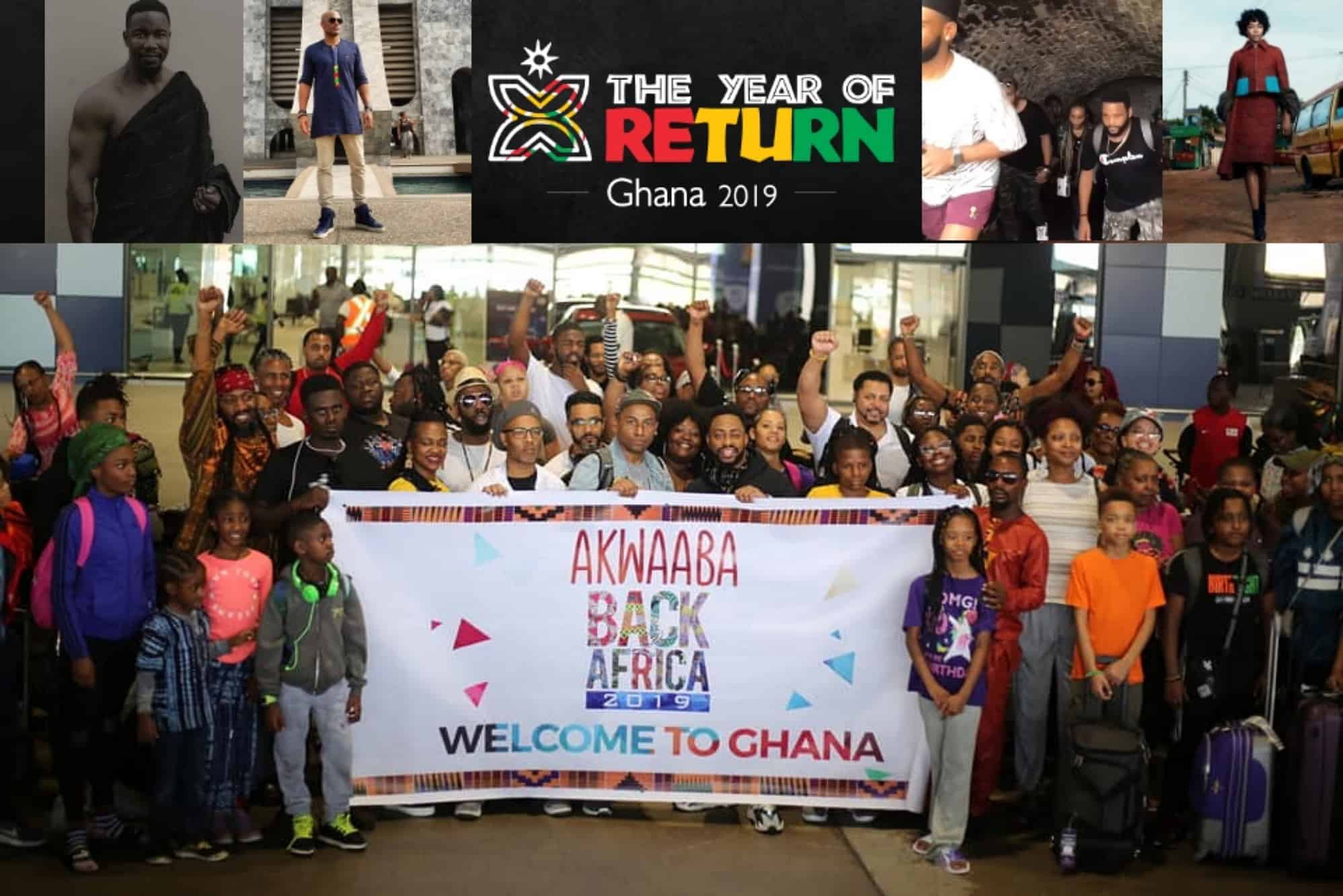
Djuana Young, an associate vice president for enrollment at Texas Wesleyan University, first visited Ghana in 1990 as a student and returned this spring with her daughter, Avery, for a mother-daughter vacation.
Young said the Ghanaian “people live, work, and have the same goals and desires” that Americans do. “Parents want their child to be successful,” she said.
Audrey Gadzekpo, a University of Ghana professor, said women outnumber men in the masters and PhD program in the Department of Communication Studies. The university attracts students from more than 70 nations or territories.
For those who work in international education programs, it comes as no surprise that there is much work to do in diversifying international programs in higher education.
Most outbound study abroad students from the U.S. are likely to be White and female. According to a 2018 Diversity Abroad report, “professionals in international education mirror the present demographic profile of students in education abroad in the United States.”
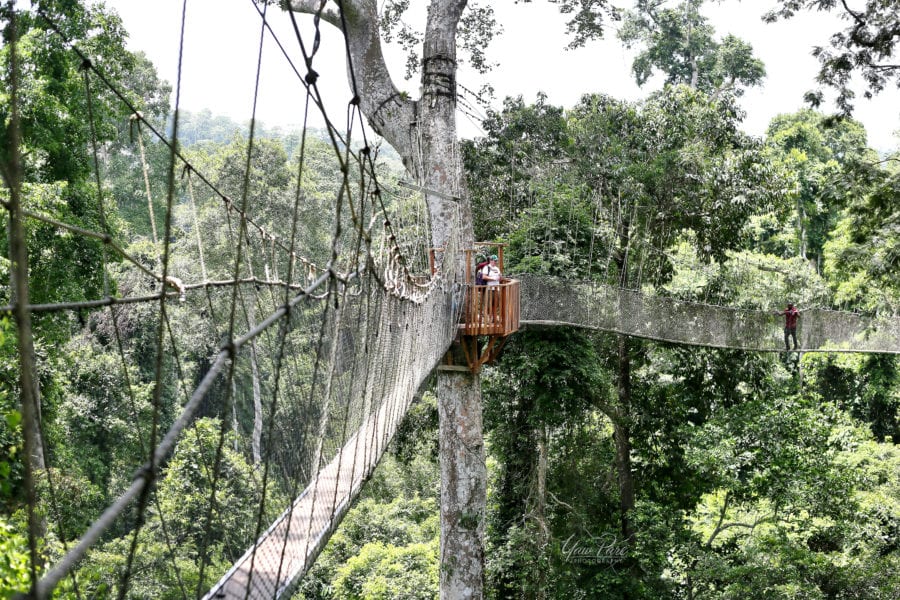
About 71 percent of the survey respondents were White and 29 percent were people of color. No survey respondents identified as Native American. Women represented about 79 percent of the respondents, followed by men at 20 percent and about 0.2 percent identified as transgender.
Adam Freed, a university relations manager with CIS abroad, offered the following counsel in a 2018 Diversity Abroad blog post: “First, we need to elevate diverse professionals in the field and provide them opportunities to share their knowledge and unique perspective. Secondly, we need to hire diverse staff to fill our study abroad offices at all levels.”
It is a blessing that folks like Marquita Smith, a John Brown University professor and Fulbright scholar, as well as UNT colleagues with Ghanaian roots such as Gideon Alorwoyie, a music professor and world-class drummer, Charles Blankson, a business professor, and Joseph Oppong, a geography professor and associate dean of the UNT Toulouse Graduate School, shared their expertise and experiences.
Thanks in part to a UNT International grant, my March mission was to explore options for a study abroad program with students in 2020 and future research collaborations. It was a professional development treat as the Ghanaian government is promoting “Year of Return, Ghana 2019.”
The celebration marks the 400th anniversary of slave ships from the coast of West Africa arriving in Virginia. It also coincides with the biennial Pan African Historical Theatre Festival, which is scheduled for July 25-31. Read more about the festival here.
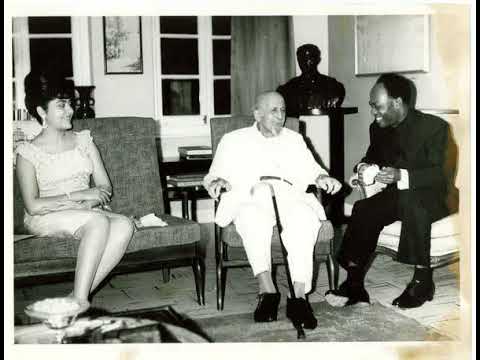
Although I will not make that festival, I recommend touring at least four sites: the W.E.B. Du Bois Centre in Accra, Kakum National Park, the Cape Coast and Elmina Castles.
Du Bois is cited for being the first Black to earn a doctorate from Harvard, a historian, sociologist, Pan-Africanist, author of The Souls of Black Folk and one of the founders of the National Association for the Advancement of Colored People. His wife, Shirley Graham DuBois, was a founding director of the Ghana Broadcasting Corporation in addition to being an author, playwright, composer and social/political activist.
Tours to Kakum National Park, the Cape Coast and Elmina Castles are day trips from Accra. Tour guides shared that each castle had a “door of no return” as thousands of slaves passed through dungeons before they were shipped to the Americas during the transatlantic slave trade era from the 16th to 19th centuries.
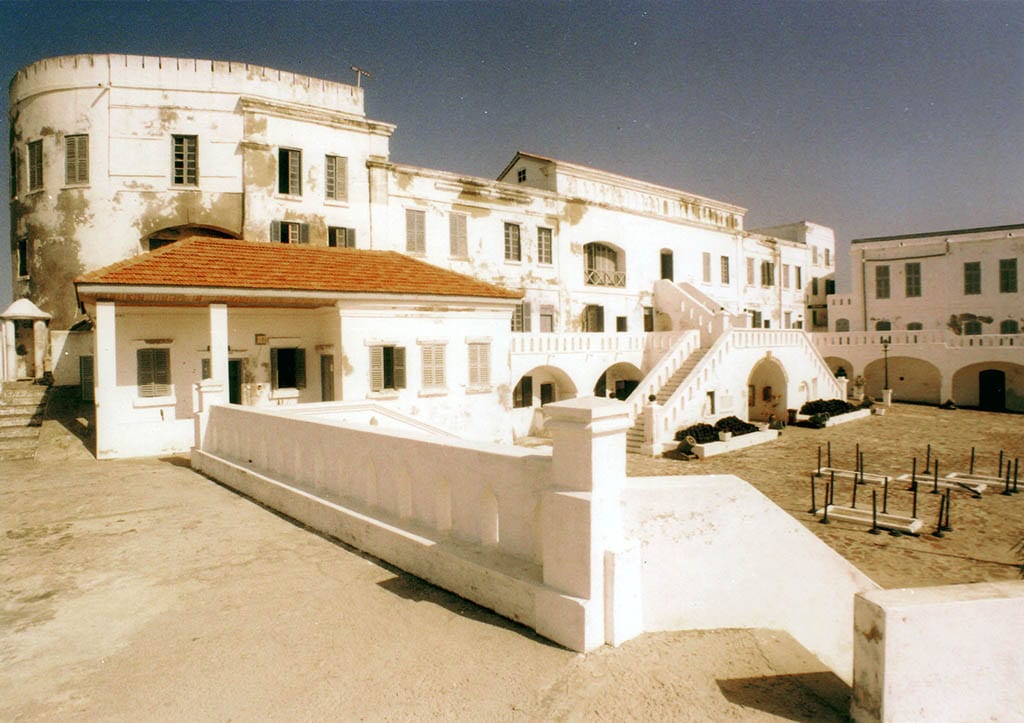
At Cape Coast Castle, the “door of no return” has been updated and labelled the “door of return,” to encourage descendants of the African Diaspora to visit and learn more about their African roots. The castles have become museums, tourist attractions and world heritage sites under the United Nations Educational Scientific and Cultural Organization (UNESCO).
Besides experiencing lots of history, culture, food, music and adventure, part of the joy in travel is the people you meet. The “spring break” adventure was Young’s first mother-daughter trip to Ghana. “I wanted her to see and understand what a strong people we come from,” said Young. “We have what it takes to persevere and make it.”
Source: diverseeducation.com
About Writer
Dorothy Bland is a journalism professor at the University of North Texas. She has traveled to 30 nations and written articles from six continents.
Jamaican Reggae Star Gramps Morgan applauds Ghana for ‘Year of Return’
Alisa Hotel, Accra/ Friday, May 17, 2019/ Written by Ivy Prosper
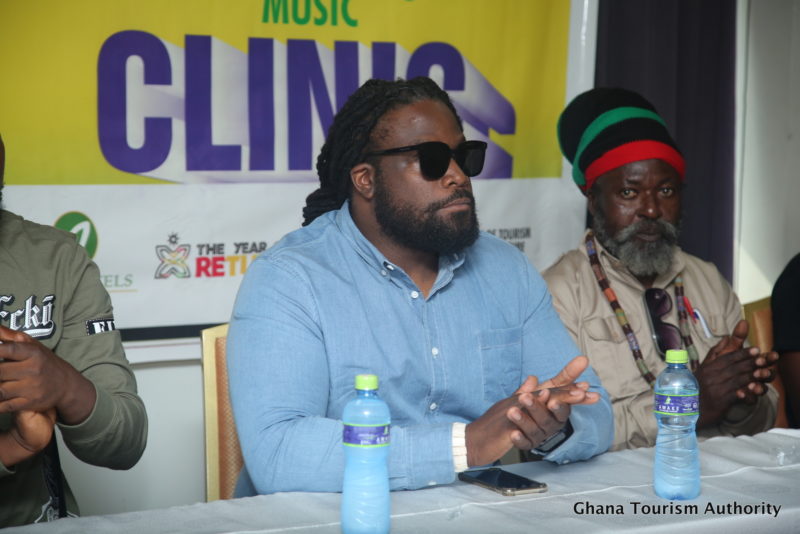
In the last few years, so many people from the African diaspora have lent their voice, talents and skills to help develop those in Ghana. One person who has made a commitment to helping Ghanaians is Reggae superstar Roy ‘Gramps’ Morgan. He started his career at age 9 as part of the group, Morgan Heritage with his siblings and has gone on to have a successful solo career with multiple hits and awards. He recently conducted his annual Music Clinic at the Alisa Hotel in Accra. He was in the country for the Ghana Jamaica Homecoming Festival as part of the Year of Return festivities. Several local artists were in attendance in hopes of not only hearing Morgan speak but to also take invaluable information to help them develop their careers as artists and musicians. Upon being introduced to the crowd he took a moment to thank President Nana Akufo-Addo for his vision. “I want to take this moment to big up the President of Ghana because he has made my dream come true when I hear him declare, and remember 400 years since slavery…..[and] that most nations in Europe and the U.S. took [part] in the Trans-Atlantic slave trade and to commemorate this year….he said this will be the year of return!”
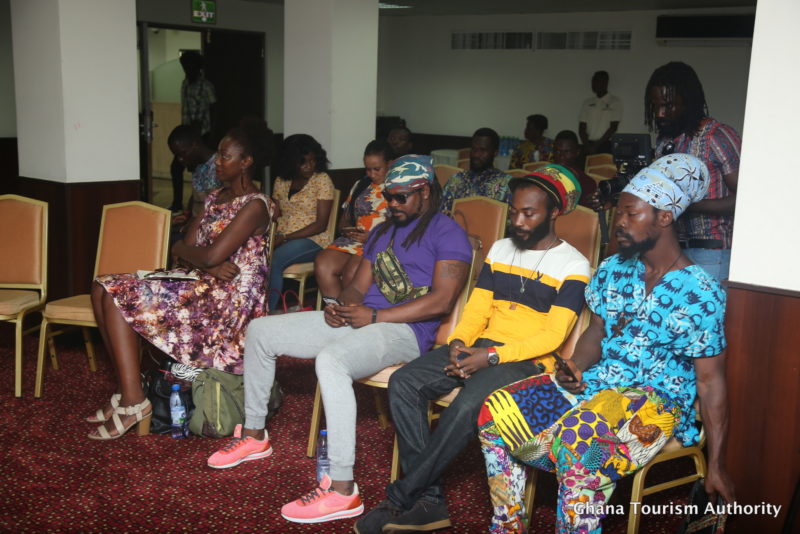
Gramps Morgan was born into the music business. His father is well-known reggae artist Denroy Morgan and since he was a young child he’s been surrounded by the music. With a lifetime of knowledge and experience in the music industry, he spoke from the heart giving words of wisdom to the aspiring artists in attendance. “There is a lot of talent in Ghana,” he said to the crowd. He spoke about the importance of having a vision, even when talent exists, or Ghana’s industry would fail. Because of his passion to help the next generation of artists, he’s taken it upon himself to share his expertise in Ghana with his annual music clinic.
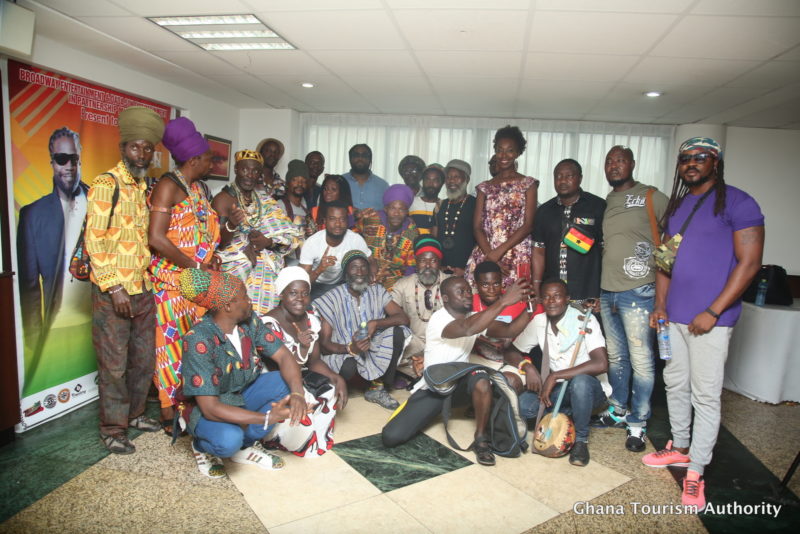
Artists in the music industry abroad have had the upper hand for decades because of knowing and understanding the business aspect more so than many artists in Ghana. Before Morgan spoke, other members of Ghana’s music industry shared their experiences in the business saying that “Many musicians don’t know much about the business aspect of the music industry.” Some don’t even realise that to build their careers in music they need more than a manager. Ras, a respected person in Ghana’s music scene, said, “In the business, we have personal managers, road managers, technical managers and business managers…. these all make the artist.” He wanted them to understand the bigger picture is more than just the music, it’s a complete package.
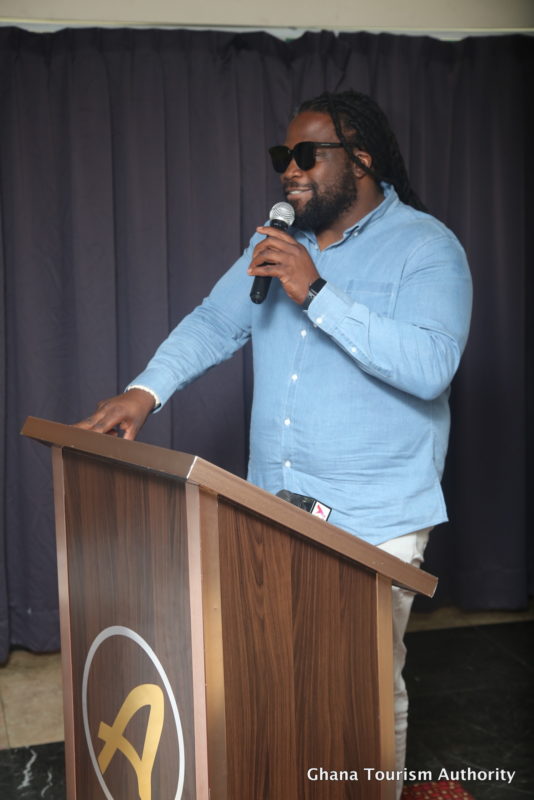
With Morgan’s ability to spot talent, it’s no surprise that artists wanted to meet him and share their music with him in hopes they can be Ghana’s next superstar. A few years ago, one artist stuck out to Gramps Morgan on his visit to Ghana. He was talking to Reggie Rockstone those years ago when he pointed a young man out and declared, “This guy is going to change the face of music in Ghana, this boy has something special.” He was speaking about Stonebwoy, now one of Ghana’s most celebrated artists on a global platform. Morgan surprised Stonebwoy those years ago when he called him asking, “Please, can you come and tour with me?” He made Stoneboy the opening act on his tour and said to him, “This is where your life begins internationally.”
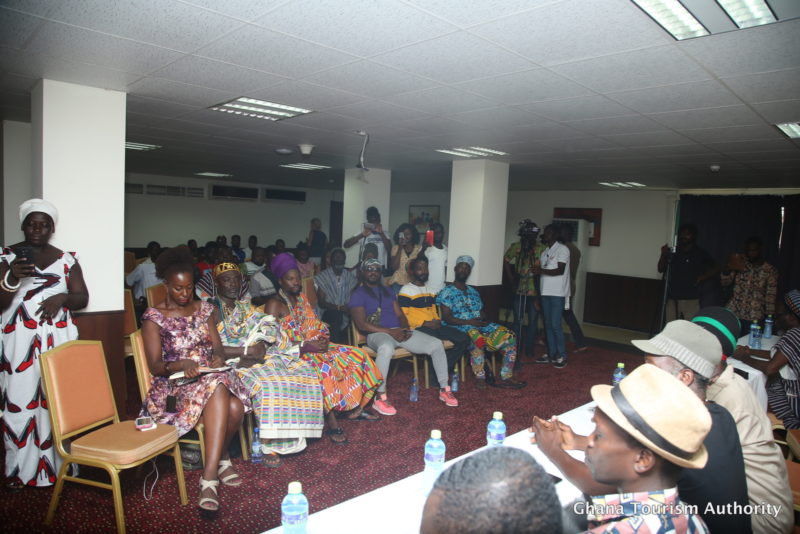
There is no denying the power of collaboration and uplifting emerging singers and musicians. Morgan’s Music Clinic is opening doors for artists in Ghana. His passion for helping is deeply rooted in the connection he feels with the continent. “I feel like it’s my job to build the bridge from the diaspora, to come home…build the bridge from Australia, from the UK, from Europe…because there were Africans that were born there, but they need to have a connection with Africa. This is Africa and it’s time.”
New Resource Map Shows Africans and Diaspora Where to Invest
With this year being declared ‘year of return‘ by Ghana’s government, the country is encouraging people of African descent not only to visit but also to invest in the economy. Through business development, import-export businesses, working with local industry and tapping into the country’s resources, people from the diaspora can make an impact in Ghana. The continent of Africa has a resource potential that cannot be denied. For decades the world has been tapping into the continent’s resources without consequence. It’s been said that Africa has much of the world’s remaining resources and it’s the last major region to be fully explored. In the past, it was mainly European and Western countries digging up and exporting the continent’s resources. Today we see China as a major stakeholder taking its opportunity to grab a piece of the African pie.

This is the perfect time to make those in the diaspora aware of the potential investment in Ghana’s natural resources. It was evident through research made by Professor Kwame Addo, a Development Architect, that much of Ghana and Africa’s land still has an abundance of natural resources available.
Professor Addo spent a considerable amount of his time and money researching the resources still available in Africa. He developed a most fascinating map that details all of Africa’s potential laid out by resource. On Tuesday 14th May 2019, he did a presentation at the UDS Guest House in Cantonments Accra, where he revealed three detailed maps that were the result of all his efforts. These maps were of the entire continent of Africa, a close of up West Africa’s resources and a fully mapped out Ghana showing everything from agriculture to minerals based on geographic region.

Dignitaries who were present for the revealing of the maps included Claudia Turbay Quintero, Ambassador, Embassy of Colombia, H.E. Alhousseini Ousmane, Ambassador of Niger, Professor Stephen Adei, Chairman NDPC, and Ambassador Erica Bennett.
Mike Aman-Kwarfo, a Design Consultant and Former Director at GBC, gave his account of when he first met Professor Addo during the 1970s when they were students. Over the years they have developed a strong relationship as friends and colleagues. As an artist, he said that Addo has always been so versatile and he exhausts all the creative elements. So, it’s not surprising that he would create something that would benefit the continent. “This is a man who has crossed cultures in terms of his output in different countries,” he continued praising him until he finally introduced him.
Professor Addo began his presentation by going through Africa’s history using a series of images, graphs and historical information. He touched on the size of Africa’s land mass as compared to other countries using graphics that showed its size relative to America, the U.K, Europe and China. “What are we doing to our continent?” is a question he asked when going through the history of our challenges and how we are in the position we’re in today. “Let’s look at our continent, where all the resources in Africa were before and where they are now.”
Addo began explaining that some of our biggest challenges when it comes to our growth has been trade wars and conflict. Not only that, but communication has also been one of our biggest hindrances. Even though Arabic, Swahili and Hausa are widely spoken languages on the continent, there are so many others spoken that unifying has been a challenge. We should also take note that the colonial division of borders created a formal disconnect that continues today.

With an invitation to the diaspora to return home to Ghana, it presents an opportunity for local Ghanaians to work with them to create opportunities to build and grow the country and continent for the future. When you have people with a vested interest in preserving Ghana while maximizing the output of resources without exploiting the people it puts Ghana in a better position.
This is just the beginning of what’s to come. The maps Professor Addo revealed were exactly what can be used as tools in government legislation when it comes to maintaining control of our resources. “Kwame has taken the time to map out Ghana based on resources…it’s brilliant,” said Professor Stephen Adei, Chairman NDPC. Now that there is a map clearly demarcating what resources we have and where they are located, it’s an opportunity to use it to our advantage and to make is a good negotiation tool. “If you don’t know what you have, you lose in the negotiation,” he continued.

The detailed map of Ghana reveals the fact that Ghana has one of the biggest bauxite resources in the world. It also revealed that Ghana’s biggest deposits of iron ore are in the northeast where there are millions of tonnes.
The Ambassador of Niger gave his remarks in French using a translator to add his thoughts to the conversation. He was very impressed with the presentation and he hopes that the maps are used to benefit the continent.
Everyone shared in excitement about what’s in store for the continent when we use the information on these maps correctly. Professor Addo expressed his concern about whether this information will even be used. He said that we as individuals can contribute to our society. These tools he has provided are just the beginning and the seeds that will bear fruit. This is especially true when we are willing to collaborate with our brothers and sisters in the diaspora.
Written by Ivy Prosper
A sense of home: A Trini remembers her visit to Ghana
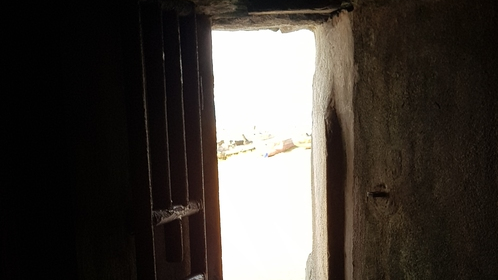 The Door of No Return in Ghana. Photos by Annabelle Brasnell
The Door of No Return in Ghana. Photos by Annabelle Brasnell
The Local Take Talks African Repatriation: Jamestown2Jamestown with Diallo Sumbry
This Saturday morning at 8 am on WCLK’s The Local Take, I speak with Diallo Sumbry, President and CEO of the Adinkra Group and the first African-American Ambassador of Tourism for Ghana. Diallo Sumbry is sharing information about the “Year of The Return” announced at the 73rd United National General Assembly by Ghana’s President Nana Akufo-Addo. This year, 2019, marks 400 years since the enslavement of African-Americans in the United States of America.
The Jamestown2Jamestown commemoration will start in Jamestown, Virginia and travel to Jamestown, Accra, in Ghana. This is event is supported by the NAACP and the Ghanaian government. Diallo Sumbry explains why this commemoration is needed.
We also talk about the many African-Americans who are repatriating back to Ghana and what interested people should do to make this move a success.
Diallo speaks to putting your foot into the waters of Jamestown, Virginia, then travelling to Ghana and putting your foot in the waters of Jamestown, Accra. He speaks about the biblical significance of 400 years.
For more information about the Jamestown2Jamestown commemoration
For more information about the Adinkra Group
For more information about the Year of The Return
Source: https://www.wclk.com
GTA and Year of Return partner WWE for Kofi Kingston Homecoming
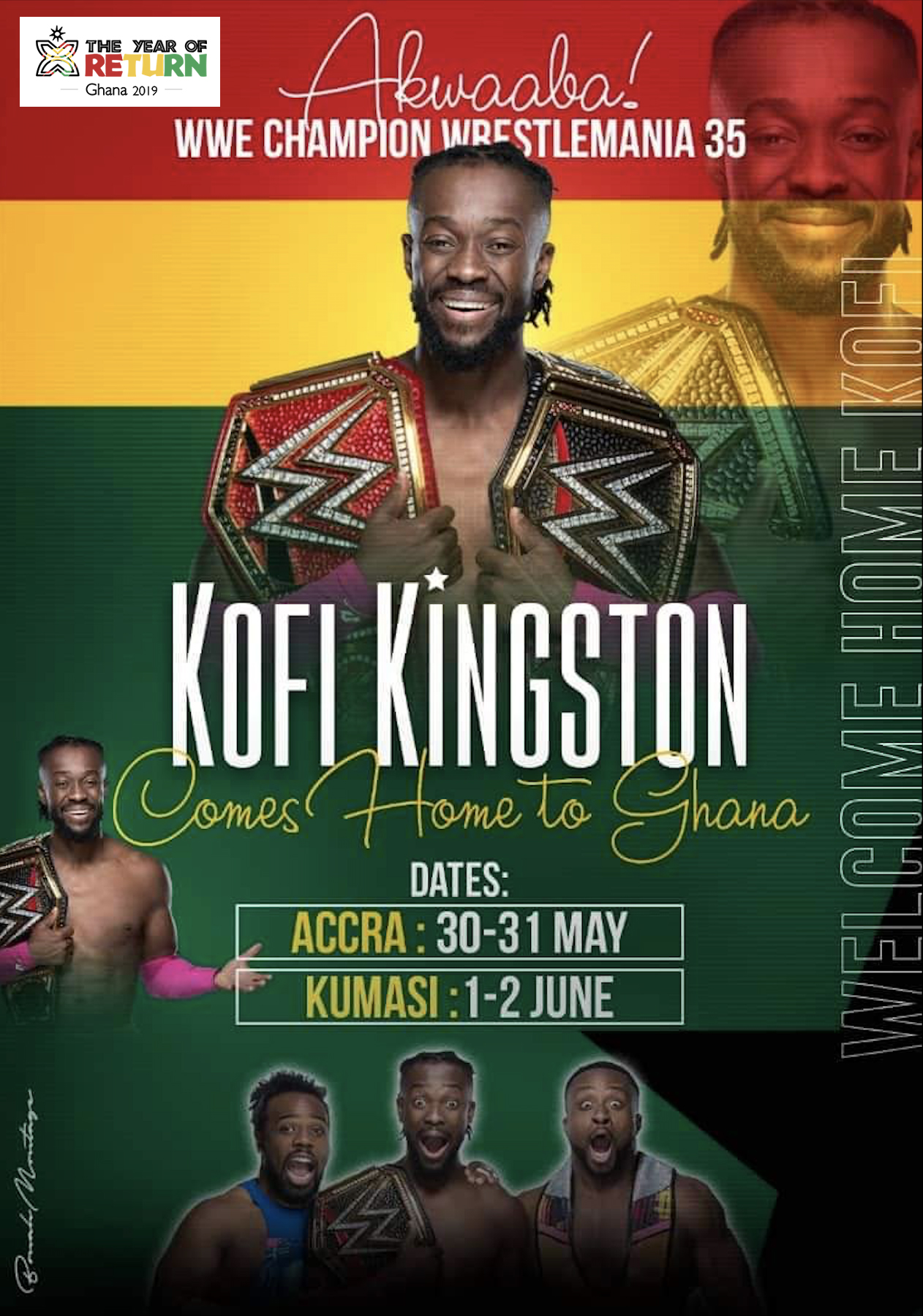
The Year of Return Ghana 2019 Steering Committee is partnering the World Wrestling Entertainment (WWE) for the upcoming Kofi Kingston Homecoming.
Read Also:
Reigning World Wrestling Entertainment Champion, Kofi Kingston has in a Facebook and Instagram post said he will be visiting home after 26 years. In a post that suggests he has heard the call to action in the trending #YearofReturn hashtag ‘Brafie’ #brafie and responding by inviting others to the slogan #LetsGoGhana, Kofi is will be returning home for a 4-day visit beginning May 30 to June 2, 2019 to pay a courtesy call on the President, Nana Akufo Addo and the Asantehene, Otumfuor Osei Tutu II at the Manhyia Palace as well as visit many tourist attractions including Lake Bosomtwi, Christiansborg (Osu) Castle, Bonwire, Ejisu and Komfo Anokye. He will be accompanied by a WWE crew who are shooting a documentary on him as World Champion.
Year of Return: Ghana beckons Caribbean to year of return festivities
August 2019 will mark 400 years since enslaved Africans landed in Jamestown, Virginia, beginning what was widely regarded as the start of the African slave trade to North America.
To commemorate this anniversary, Ghana has dubbed 2019 The Year of Return and has a robust calendar of activities throughout the year to mark the milestone, which includes a celebration of African music in an event called Afrochella, Carnival, a natural hair expo and a Ghana Jamaican Homecoming Festival (which was held in April).
While the Year of Return ostensibly targets African Americans, urging them to reconnect to their roots and maybe settle and find a new life in the motherland, those of African descent in the Caribbean are also being embraced.
Akwasi Agyeman, Chief Executive Officer of the Ghana Tourism Authority, told Loop that the African diaspora in the Caribbean is being recognised through the annual Emancipation Day celebrations on August 1, and the Pan-African Historical Theatre Festival (PanaFest).
Ghana is the only African nation to celebrate Emancipation Day, which was first declared a national public holiday in Trinidad and Tobago.
PanaFest will see a variety of activities leading up to Emancipation Day including a slave route pilgrimage, a wreath-laying programme and tribute to the Pan African Pioneers in Accra, the capital city.
“With the Year of Return, we are looking at other programmes for the diaspora to connect with their roots. For the Caribbean specifically, PanaFest and emancipation are what we feel is the click to connect the Caribbean,” he said.
The Year of Return kicked off on New Year’s Day in Ghana’s capital of Accra with a bevy of African American stars in attendance at the Full Circle Festival, among them Boris Kodjoe, Idris Elba, Anthony Anderson, Naomi Campbell, Jidenna and Jamaican singers Tarrus Riley and Morgan Heritage.
Agyeman said a launch was also held in Jamaica in January with the intention to move around the other islands at a later date.
Nevertheless, he assured that Ghana will continue to strengthen its relationship with the Caribbean.
“The Year of Return is just the beginning of the engagement with us and the diaspora, so connections will be properly positioned,” he said.
With a number of Caribbean nationals already living and working in Ghana, owning hotels and restaurants and aviation agreements signed between the West African country and some Caribbean countries such as Guyana, the bonds serve to strengthen the historical ties.
Ghana has long benefited from a relationship with Caribbean nationals such as George Padmore, a Trinidadian scholar who worked as a close advisor to former Ghanaian President Kwame Nkrumah, and Jamaican Pan-Africanist Marcus Garvey whose Black Star Shipping Line inspired the black star on the Ghana’s national flag.
“We have the Ghana Caribbean Association and we recently had representatives from Trinidad and St Vincent come here,” said Agyeman, revealing that a group from The Bahamas has also been in Ghana working on the Joseph Project, an initiative to connect and unite African people all over the world.
Ghana, which has positioned itself at the centre of the reunification of African people in the diaspora, is also enticing many to its shores through the Right of Abode policy that grants citizenship to Africans in the diaspora.
In December 2016, 34 African Caribbean people became Ghanaians in a naturalisation ceremony attended by then-president John Mahama.
The country is also hoping to entice Ghanaians in the diaspora to return home with their skills and knowledge.
The Year of Return is the main marketing strategy for the tourism agency and builds on the country’s heritage tourism.
“Tourism is number four in our economy. We have oil, gold, cocoa and then tourism. Tourism is a low hanging fruit. Out of the 60 something fort and castles in West Africa, we have 30 or so in Ghana. When it comes to connecting heritage and diaspora to their roots, most people feel when you come here you are coming to a place where there is that connection, “said Agyeman.
In addition to the heritage sites, Ghana has several other attractions, he said, including adventures, eco-tourism, forests, parks and beaches.
Agyeman said there is currently a drive to improve facilities and drive employment. They are also creating incentive packages for people to invest in the hospitality sector.
Source: looptt.com/
‘Top Chef’ Star Eric Adjepong takes ‘#EatGhana’ Jollof Rice to 4 US States
The chef partnered with a company called Territory to sell a version of the West African staple
Ghana opens its arms to Africans in the diaspora
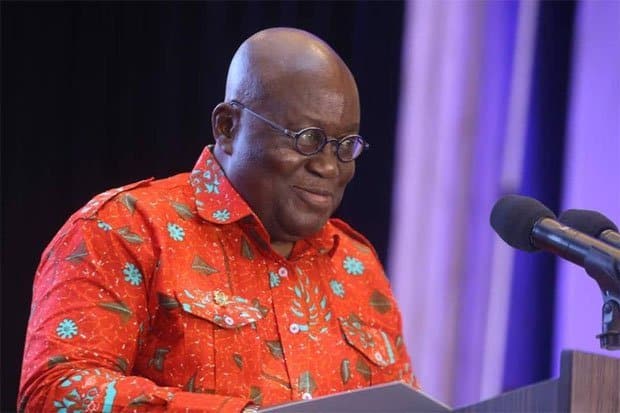
To mark the 400 years since the anchoring of the first slave ship in Jamestown, Virginia, President Nana Akufo-Addo of Ghana has declared 2019 the ‘Year of Return’ for Africans in the diaspora.(AP)
Many Accra-dwellers will know that December is the month of the returnees. In the days leading up to Christmas, Ghanaians from across the diaspora pour into the country in their thousands, disembarking from planes that have landed from London, New York and elsewhere. Families welcome their loved ones at Kotoka International Airport, the taxis are filled, the churches are packed and the parties are non-stop.
But last December saw another set of returnees, many of whom had never set foot on the continent before. It was the Christmas that Black Hollywood came to town, with Ghanaian-Austrian actor Boris Kodjoe and Ghanaian-American marketing whizz Bozoma Saint John (formerly the Chief Branding Officer at Uber) hosting an array of celebrities including the supermodel Naomi Campbell and actors Idris Elba and Rosario Dawson, for Christmas in the motherland.
The stars saw in the new year by attending the Full Circle Festival which marked the launch of the ‘Year of Return, Ghana 2019’ an initiative headed by the Office of the Diaspora and backed by the Ghanaian president Nana Akufo-Addo to commemorate the 400 years since the first enslaved Africans landed in the Americas, in Jamestown, Virginia in the United States.
Although there are no accurate figures, UNESCO estimates that approximately 17 million men, women and children were forced onto slave ships in Africa and sold into slavery in the Americas between the 16th and 19th centuries.
The impact of the transatlantic slave trade is wide-reaching but at its essence, it propelled the industrialisation of Europe and led to the underdevelopment of Africa.
By hosting the Year of Return, Ghana hopes to attract tourists from across the African diaspora to reconnect with the continent. There are a number of events planned until the end of 2019 including investment summits, leadership forums and cultural activities. The year will culminate in another – larger – Black Hollywood pilgrimage tour in December.
Akwasi Ababio, director of the Office of the Diaspora and chairperson of the Year of Return committee, tells Equal Times that for many in the African diaspora, the possibility of returning ‘home’ holds great significance. “Some people have come to Ghana, and just on arriving at the airport, seeing that they’re standing on the land that their ancestors used to occupy, has brought a sort of relief,” he says. “They are able to come and reconnect spiritually.”
The home of pan-Africanism
The Year of Return comes more than ten years after another project was launched in Ghana, the Joseph Project, in 2007. That initiative, like the current one, sought to encourage Africans from the diaspora to visit Ghana in a bid to connect them to the rest of the continent. In 2000 the Right to Abode law was enacted, offering people of African descent the opportunity to settle permanently in Ghana, although legal technicalities make the process quite complicated.
The concept of repatriation isn’t new to Ghana. The idea of Africans in the diaspora returning ‘home’ was encouraged by Ghana’s first president, Dr Kwame Nkrumah, who served as a figured head for the wave of pan-Africanism and black unity that spread across the continent around the time that most African countries gained independence from their European colonisers in the 1950s and 1960s.
As the first sub-Saharan African country to gain independence from its European coloniser (the United Kingdom) in 1957, a host of key figures in the black liberation movement moved to Ghana: the seminal US civil rights activist Dr W.E.B Dubois moved to Accra in 1961, living there for two years before he died in 1963; the American poet and author Maya Angelou also worked and lived in Ghana in the 1960s, and Malcolm X visited around the same time as Muhammad Ali did in 1964.
Over the years, many more descendants of Ghana – from the United States, the Caribbean and elsewhere – would make the journey to Ghana. One such returnee is Renée Neblett. The 71-year-old moved to Ghana in the 1990s, after years of visiting. While living in the United States, Nesblett was a member of the Black Panther movement. As racism, and the violence that came with it, permeated everyday life, Neblett – like a number of African-American writers and artists such as James Baldwin, Paul Robeson and Josephine Baker before her – first looked to Europe for freedom and inspiration.
After spending over a decade in Germany, she headed back to America but was disappointed to see where the movement of black empowerment had arrived. “I left during the Black Power movement so to return to America [in the eighties] to affirmative action and … a landscape still rife with the language of race politics, that for me was riveting. To see how a legitimate struggle for equal access under the law was [taken] and somehow defined in such a way that they institutionalised our second-class citizenship…I was stunned by that.”
While in the United States, Neblett began working in education and in a bid to expand the cultural curriculum of American students, she began visiting Ghana in the 1980s with groups of university students. After a few years she was ready to relocate. In 1992 she established the Kokrobitey Institute, which hosts residencies and educational programs on art and design, history and the environment in Kokrobitey, a beach town just outside of Accra.
“I feel free in Ghana”
Like Neblett, the horrors of race relations in the United States had become unbearable for Jamaican-American Lakeisha Marie. After spending many years visiting Ghana, in 2013 she began to undertake post-graduate research that required her to spend time in the country. On completion of his master’s degree, she headed back to New Jersey, only to be confronted with one of the most shocking examples of police violence against African-Americans in recent memory.
“I remember hearing about the shooting of Mike Brown [by police officer Darren Wilson in Ferguson, Missouri]. I had just got back in the country like maybe a day after it happened. And I remember sitting on my bed, looking at the articles in the news and the video of his body in the middle of the street in a pool of blood,” she recalls. “That’s when I decided to move to Ghana. I couldn’t continue with America. I needed to not be there. I knew that I always felt happy in Ghana, and that I felt free here.”
Now, five years later, she runs her own communications consultancy called Ford Communications, which specialises in public relations, customer service training and brand management with the purpose of bridging the gap between Africa and the west.
As a young woman with degrees from American universities, Marie has found making business connections in Ghana quite fruitful. She also notes that there are more opportunities and resources in Ghana than in her country of heritage, Jamaica. But she is aware of the privileges that being an expat affords her.
“If you’re a local with a high school diploma or even with a college degree, the labour market can be tough. Finding a job or getting compensated at a level that makes sense can be very difficult,” she says. “However, if you are foreigner…then your privileges are different. You have access to certain opportunities that locals might not. And because there are foreign companies coming in and setting up there might be more of a gap.” Because of this Marie says that she focuses on skills training and hiring locally.
Ababio says this is something that his office is keeping in mind. He is, however, excited by the possibilities the diaspora can bring to Ghana, through investment and business development. “For any government, you would want people to contribute through its flagship programs,” he says, referring to the ‘One District, One Factory’ industrialisation initiative, for example, which aims to create as many as 3.2 million jobs by 2022.
Essentially, through his office, Ababio hopes to attract investment from the diaspora and channel it into projects such as this one. “The more people that come to your country, the more they will get to know what is required. What is deficient, what needs improved on, what needs to be enjoyed.”
Ababio is pleased with the way the Year of Return is going so far. In January, CNN named Ghana as one of its 19 best places to visit in 2019. Lonely Planet is organising a specific Year of Return tour and a range of other African and black-owned tour companies are working on doing the same. There is a sense of expectation in the air.
The government is currently touting industry-led development with a focus on public-private partnerships. But the country still faces huge challenges; with a large youth population and high levels of unemployment and poverty, the government will have to balance the potential that comes with enticing tourists and foreign investment without exacerbating the already entrenched inequality in the country.
Source: equaltimes.org
Year of Return: WWE World Champion Kofi Kingston to visit Ghana after 26yrs
Reigning World Wrestling Entertainment Champion, Kofi Kingston has in a Facebook and Instagram post said he will be visiting home after 26 years. In a post that suggests he has heard the call to action in the trending #YearofReturn hashtag ‘Brafie’ #brafie and responding by inviting others to the slogan #LetsGoGhana, Kofi is will be returning home for a 4-day visit beginning May 30 to June 2, 2019 to pay a courtesy call on the President, Nana Akufo Addo and the Asantehene, Otumfuor Osei Tutu II at the Manhyia Palace as well as visit many tourist attractions including Lake Bosomtwi, Christiansborg (Osu) Castle, Bonwire, Ejisu and Komfo Anokye. He will be accompanied by a WWE crew who are shooting a documentary on him as World Champion.
Read the story below as published by WWE.com on Friday, May 9, 2019.

Kofi Kingston is going home. And, of course, he’s got a little extra luggage to take with him this time around.
Read Also:
The WWE Champion revealed Friday on Instagram that he is planning his first visit to his home country of Ghana, West Africa since 1993 — part of a celebratory “Year of Return” in the wake of winning his first World Championship. A WWE film crew will be documenting the four-day visit, which includes a children’s rally, visits to Kofi’s maternal and paternal hometowns, as well as a courtesy call on the Ghanaian president, H.E. Nana Addo Dankwa Akufo-Addo, and a visit to Otumfuo Osei Tutu II, the Asante Monarch.

Read the full press release below, and stay tuned to WWE’s digital channels for more on Kofi’s homecoming.

Journey to becoming World Champion
The New Day’s Kofi Kingston is powered by positivity, and he’s used it to catapult himself, Xavier Woods and Big E to new heights.

Since bursting on the WWE scene in 2007, Kingston has established himself as one of WWE’s premier high-flyers. That, paired with his upbeat attitude, made him a perennial favourite of the WWE Universe as he racked up Intercontinental, the United States and Tag Team Championships. Kingston also cemented his place in WWE history with a series of daredevil moments where he saved himself from elimination in several Royal Rumble Matches.
Above: Video of how Kofi Kingston won the title
When he joined forces with Big E and Xavier Woods to form The New Day, though, no one could have guessed that the trio of unicorn horn-wearing, Booty-O-chomping Superstars would achieve the feats that they have in WWE. In fact, the WWE Universe despised them at first but soon grew to love them.
Read Also:
As a veteran member of the team, Kingston provides his wealth of knowledge to his younger compadres, and it has paid off. Not only has The New Day become one of the most popular factions in WWE history, but ya boys have held multiple Tag Team Championships between their stints on Raw and SmackDown LIVE, including the longest reign in WWE history – an astonishing 483 days.
Read Also:
Kingston’s 11 years of hard work and dedication finally brought him to the dance at WrestleMania 35 where he challenged Daniel Bryan for the WWE Title. With the entire WWE Universe behind him, as well as his New Day brothers and the SmackDown locker room, Kofi beat Bryan to claim WWE’s ultimate prize. It just goes to show what the Power of Positivity can accomplish.
Kofi Kingston’s explains his unique Adinkra Tatoos

About Kofi Kingston
Kofi Nahaje Sarkodie-Mensah(born August 14, 1981) is a Ghanaian-American professional wrestler signed to WWE, under the ring name Kofi Kingston, where he performs on the Smack Down brand, and is the current WWE Champion in his first reign. He is the first African-born WWE Champion and is also a member of The New Day along with Big E and Xavier Woods.
After graduating from college, Sarkodie-Mensah decided to pursue a professional wrestling career. He began performing on the New England independent circuit as a Jamaican wrestler by the name of Kofi Nahaje Kingston. After signing a developmental deal with WWE in 2007, he shortened his ring name to “Kofi Kingston”. Kingston debuted in WWE in 2008 using the same Jamaican character as he did on the independent circuit. In late 2009, he stopped being billed from Jamaica and dropped the accent although he kept his ring name. He then started being billed from his home country of Ghana.

Kingston spent much of his first few years in WWE on the midcard singles scene, during which he became a four-time Intercontinental Champion and a three-time United States Champion. In 2014, Kingston formed The New Day with Big E and Xavier Woods. The trio went on to break the record for the longest Tag Team Championship reign in WWE history when they held the WWE (Raw) Tag Team Championship from August 2015 to December 2016 while defending the titles under the Freebird rule. In April 2019, Kingston defeated Daniel Bryan at WrestleMania 35 to win the WWE Championship, his first world title in WWE.

He is the first African-born world champion in WWE history as well as its 30th Triple Crown Champion and 20th overall Grand Slam Champion (13th under the current format). In addition, Kingston himself holds the singular record for most days spent as a Tag Team Champion within WWE and is also known for innovative ways of suspending his elimination from Royal Rumble and battle royal matches. With the exception of a few months spent as a heel (villainous character) in 2015 with The New Day, Kingston has been a babyface (heroic character) for almost the entirety of his WWE career.
About Year Of Return
The “Year of Return, Ghana 2019” is a major landmark marketing campaign targeting the African – American and Diaspora Market to mark 400 years of the first enslaved African arriving in Jamestown Virginia. The Ghana Tourism Authority (GTA) under the Auspices of the Ministry of Tourism, Arts and Culture is leading the project in collaboration with the Office of Diaspora Affairs at the Office of the President, the Panafest Foundation and the Adinkra Group of USA.
The Year of Return seeks to make Ghana the focus for millions of African descendants reacting to their marginalisation by tracing their ancestry and identity. By this, Ghana becomes the beacon for African people living on the continent and the diaspora.
The United States Congress recently passed an Act H.R. 1242 – 400 Years of African-American which is a historically significant milestone. Ghana’s unique position as the location for 75 per cent of the slave dungeons built on the west coast of Africa and the current President’s policy of making it a national priority to extend a hand of welcome back home to Africans in the diaspora cannot be overemphasised.
There are still numerous imposing European forts and castles harbouring harrowing reminders of an intense and complex history of the Trans-Atlantic slave trade in our land over centuries. This on its own has made Ghana the focus for millions of African descendants reacting to their marginalization by tracing their ancestry and identity.
However, even more, important is the recognition of Ghana as a beacon of hope for African people living on the continent and in the Diaspora. This status was earned not by coincidence but by conscious efforts to validate the struggles, strengths and linkages between African descendants on a Pan-African scale.
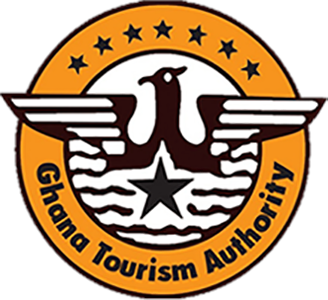

 Call Center
Call Center
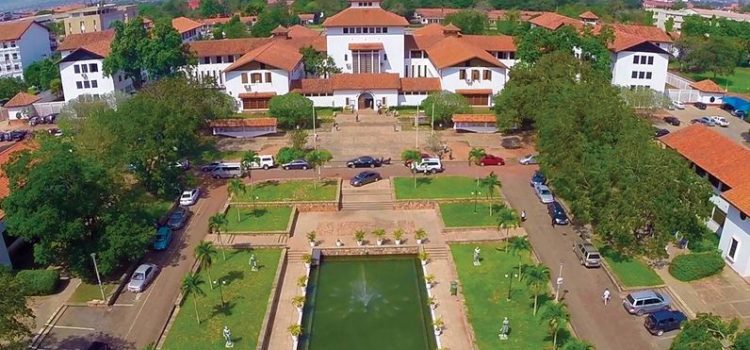

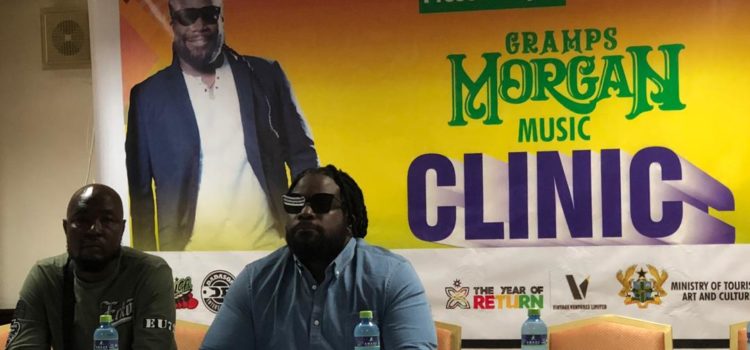
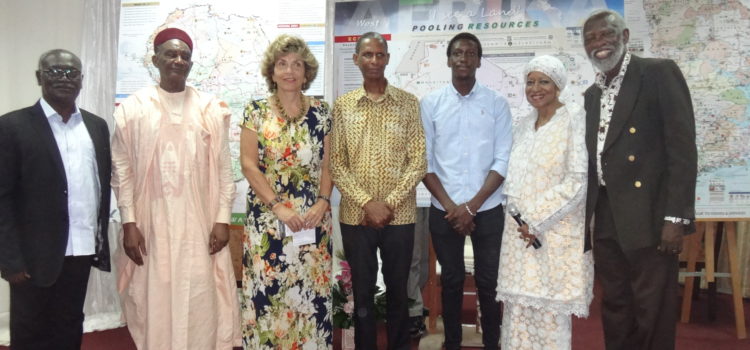
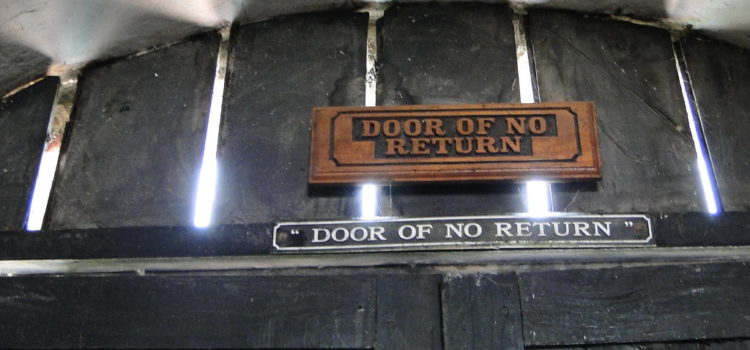
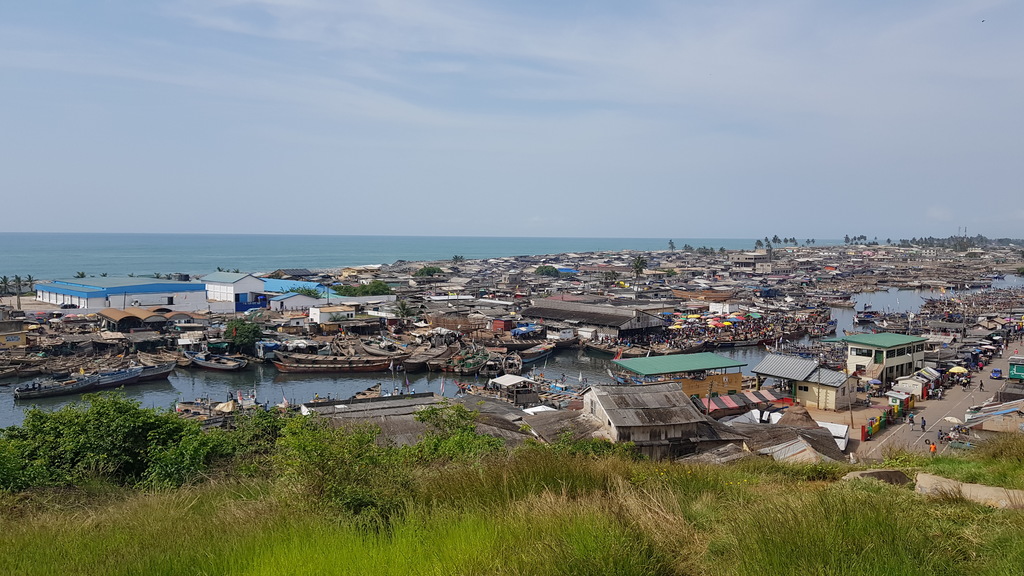

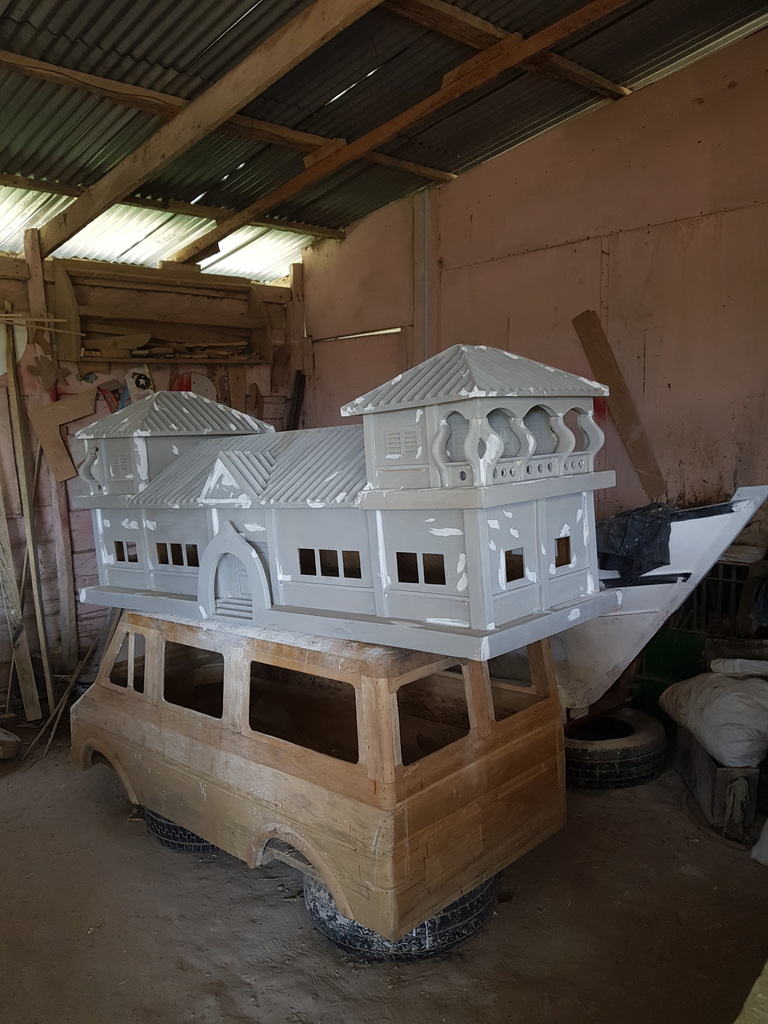
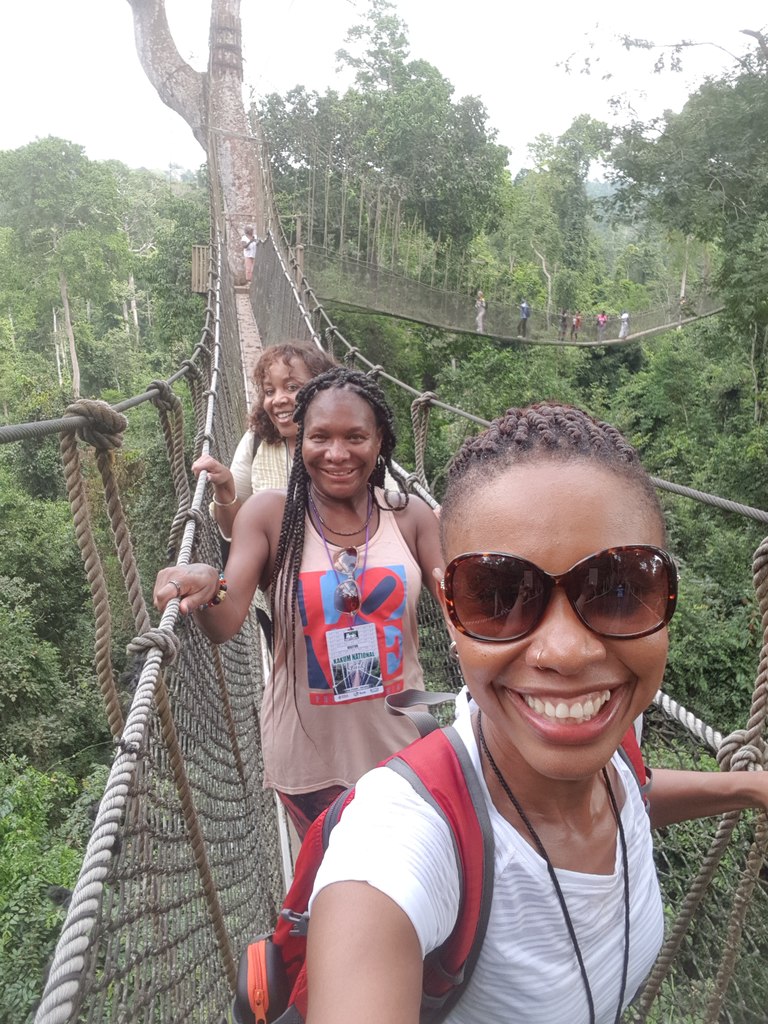
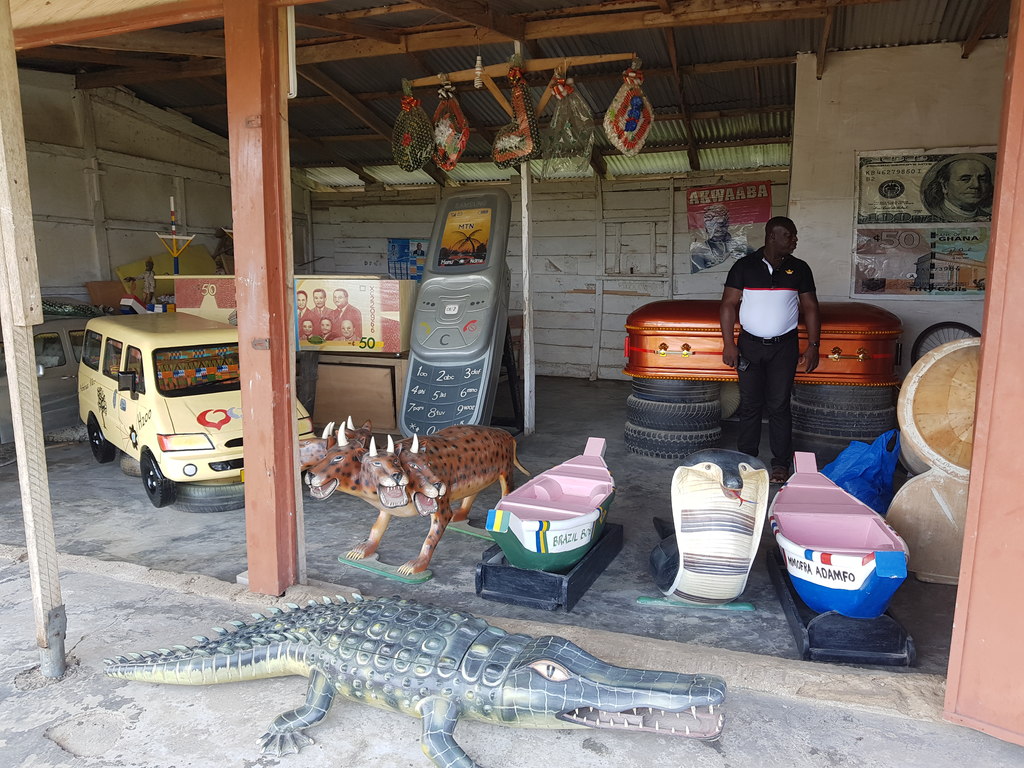
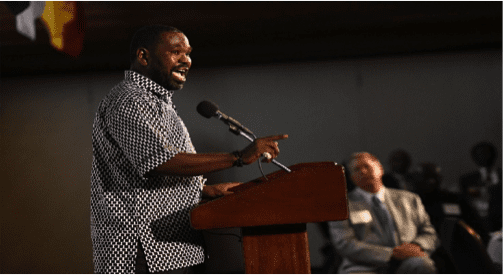
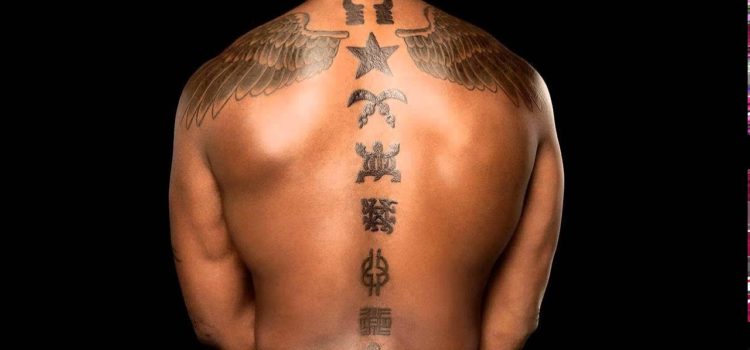
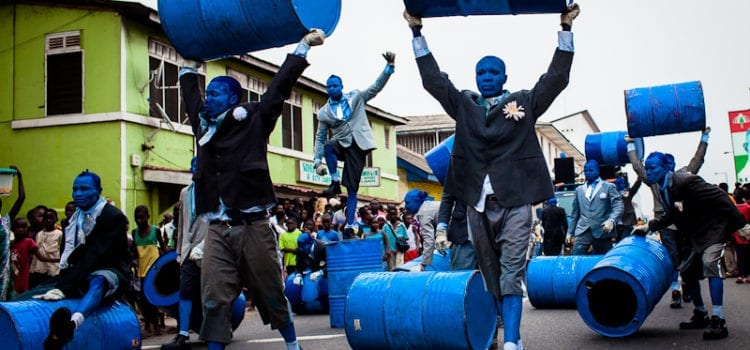
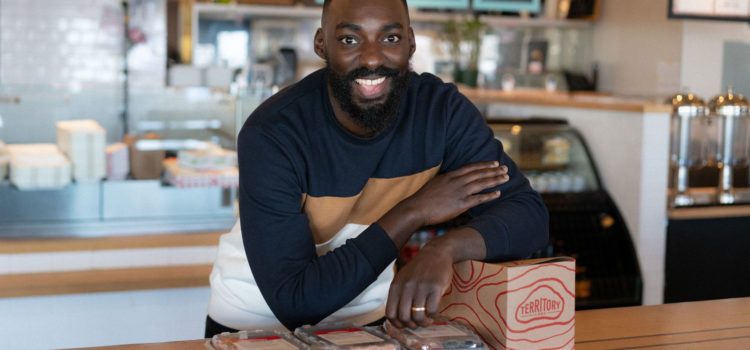
/cdn.vox-cdn.com/uploads/chorus_image/image/63825077/4.0.0.jpg)
:no_upscale()/cdn.vox-cdn.com/uploads/chorus_asset/file/16256900/26.0.jpg)
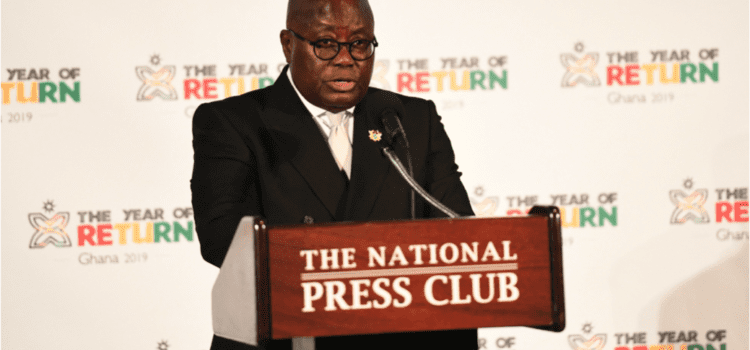
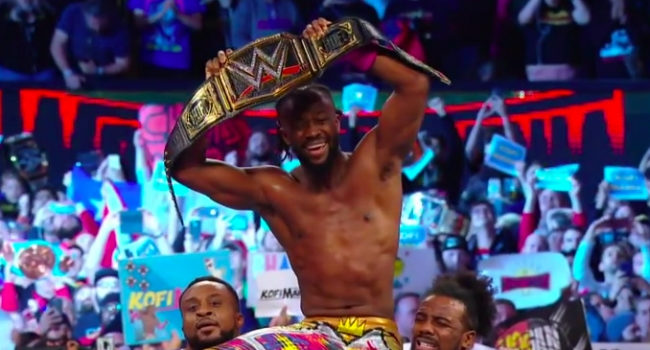
 Call Center: 0307007100
Call Center: 0307007100